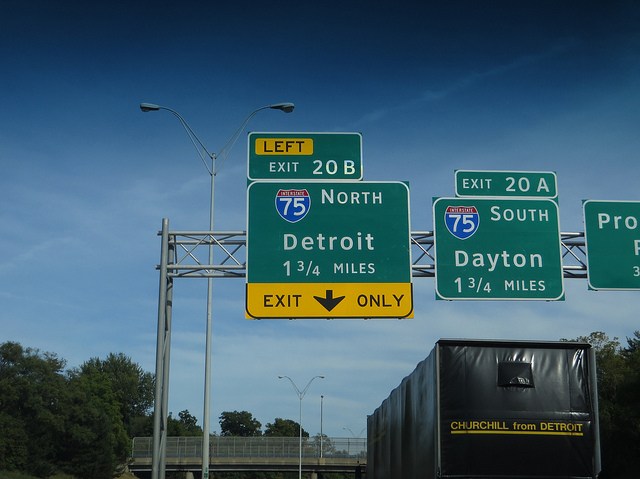A new report from Detroit's regional planning agency highlights the terrible condition of roads in the city and its suburbs.
The Southeast Michigan Regional Council of Governments (SEMCOG) reports that 41 percent of the Detroit area's major roads are in poor condition. Another 40 percent are in fair condition, meaning less than 20 percent are in good condition.
SEMCOG is nakedly using its report as an appeal for more money. But more money won't fix the problem. All those roads in disrepair are a sign of how badly SEMCOG has managed the resources at its disposal, and the agency still hasn't learned its lesson.
At this very moment, SEMCOG is planning to pour $4 billion into widening two highways -- I-75 and I-94 -- that feed into Detroit's wealthy northern suburbs. Those highway expansions will generate more traffic, adding to the strain on other roads, while the region squanders billions that could have gone into maintaining existing infrastructure.
But SEMCOG's propaganda is working. In its coverage of the road conditions report, The Detroit Free Press runs through a litany of ways to get more money for roads -- including raising local taxes, hoping for more federal funds, or transferring money from other state priorities. Reallocating billions of dollars from a terrible highway expansion project never gets mentioned.
It's not like the "more money" approach hasn't already been tried. Reporter Christina Hall notes that the state legislature "approved $175 million extra this year for roads." That follows a 2015 effort that increased road spending with $600 million in new taxes and fees.
SEMCOG's Bill Anderson tells the Free Press that metro Detroit has been spending about $400 million a year on roads, but they "will continue to deteriorate at a faster rate than we can fix them." He estimates that the region needs $1.6 billion a year just to bring its major roads into a state of good repair -- four times the current rate of spending.
Detroit can't afford to quadruple its spending on roads. But the region sorely needs to improve how it allocates existing resources. Too bad SEMCOG never has to defend its decisions to neglect maintenance in favor of highway expansion.






